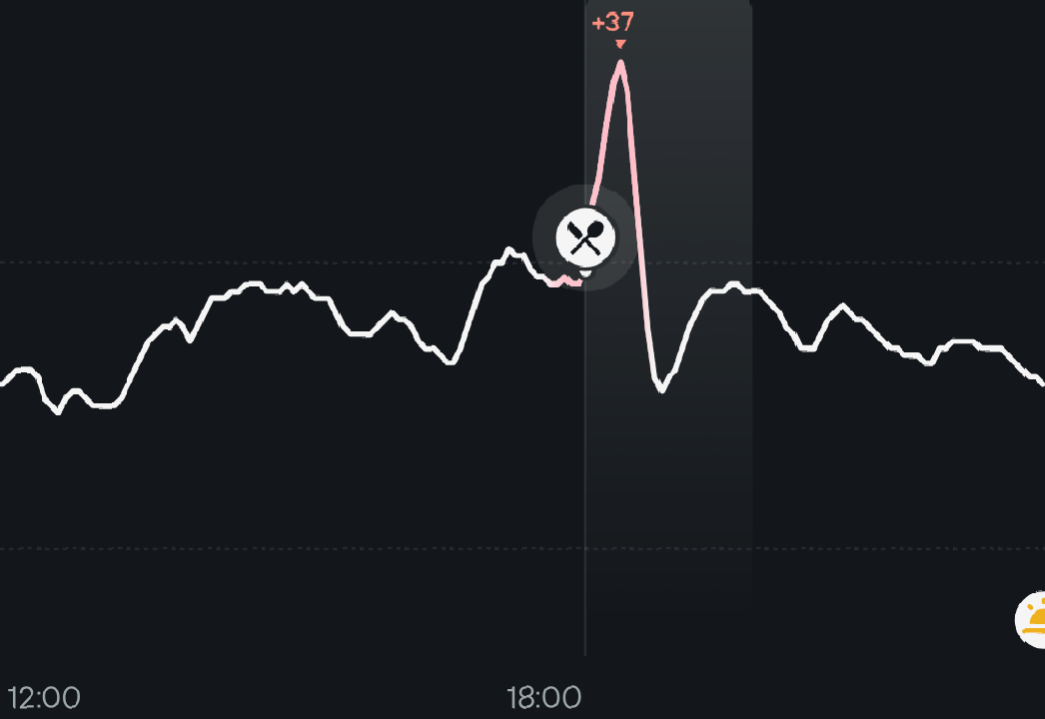I am a great fan of looking at the CGM outputs. Peak is an issue because of the effect on mtDNA
1 Like
@John_Hemming I’m curious. Do you have any idea if blood glucose at 180mg/dl causes twice as much glycation as 90mg/dl in the same period of time, or is 180 10x as much glycation on red blood cells?
And what about mitochondria damage? Is twice the blood sugar twice the damage or worse?
RobTuck
#33
I’m posting a contrarian view to stimulate discussion and perhaps new information, not because I’m convinced of its merit.
The research I have read suggests that cellular damage from long term elevation of blood glucose occurs at levels higher than we see in a normal cycle of pre-diabetics or even some early phase diabetics who have normal insulin sensitivity but reduced insulin output due to (to simplify for this discussion) “fatigued or inflamed” beta cells. Part of my questioning goes back to a point I mentioned before of knowing people who lived in good health well into their 90s with BG levels that were elevated for the last 50-60 years of their lives. I might possibly fit this category. Even though my A1C is borderline and my fasting AM BG is typically 100-110, I have measured after heavy meals with plenty of carbs and haven’t seen a reading above 150. I wonder if we would come to different conclusions about how to treat the condition if we were to examine all cause mortality by mean area under the curve above a threshold of 180 or 200 mg/dl.
This is really valuable. Thank you for your efforts at compiling and sharing this!
3 Likes
A_User
#35
You can look at what diabetes damages and possibly extrapolate that to the glucose spikes or elevated glucose. Peter Attia have done this comparison before but I don’t know how true it is.
1 Like
But… here is what I find that seems to contradict this. Acarbose and Canagliflozin both are agents for lowering blood sugar levels and even in healthy non-diabetic mice, extended lifespans very significantly (9% to 17%). This seems to argue for blood glucose damage happens at much lower levels than in diabetics, don’t you think?
5 Likes
adssx
#37
On the other hand acarbose and SGLT2i barely lower glucose levels in non diabetic humans.
5 Likes
cl-user
#38
The role of acarbose is to blunt the glucose spikes from the carbs intake which it does very effectively.
Here is a little experiment I did. I ate around 13:00 a rather low carbs meal with some homemade sourdough bread, an honeycrisp apple and 100mg acarbose => no glucose spike
Then I ate a similar meal around 18:00 without acarbose => +37mg/dl spike. Very short BTW which is good as it shows good insulin sensitivity.

Clearly the area under the curve of that spike is not much and it’s even compensated by a dip in glucose after it so, in the end, the AUC change is minimal if any.
6 Likes
RobTuck
#39
This is an interesting and maybe still partially unresolved question. Based on the evidence, it would seem that all reductions in BG (to some point where the curve goes the other direction) are beneficial. I wonder if some other factors are in play as well. For example, I feel “not quite right” when my BG drops into the 80’s, which is often held as a target. I feel great when it is in the 90’s or even in the very low 100’s. The negative feelings in the 70’s could be some kind of conditioned response that might change if I maintained it at that level or it could be due to hard wired individual differences. For me, steel cut oatmeal almost always causes my BG to drop into the 80’s a few hours after eating it.
2 Likes
Neo
#40
How reliable are these sources. The one above is not real for example. Episode #112 was with Ned David I think and as far as I remember Peter has never had Brad Stanfield on his podcast.
Similar there are refs to a Drive podcast with Robert Lustig - but it does not seem like Peter has ever had him on the podcast either?
3 Likes
zebit0
#41
AI generated so … not reliable.
1 Like
mccoy
#43
I listened to R. lustig a while back on the Drive, about fructose. I remember he said fresh fruit is all right, which I agree with, for some people and purposes, and especially in the hot season it’s an excellent choice. Lots of unjustified demonization.
2 Likes
Neo
#44
@mccoy Thx. Seems that the “AI hallucination” was about the episode number:
The Drive podcast #82 with Dr. Robert Lustig
Episode 82 was actually
2 Likes
A_User
#45
It’s almost 2025, people should know about AI hallucinating sources by now.
AI needs to always be checked in the state it is in now.
1 Like
RapMet
#46
Yes, but is there even a need to do so? or that should be taken as a good thing since too low of glucose level would be a problem? If glucose is at normal levels, I’d rather not take acarbose and SGLT2I’s or if I’m taking them I’d be doing for other reasons, (i.e. simply maintenance and microbiome etc…) and taking them in very low doses.
1 Like
RapMet
#47
Great info and very helpful @A_User. thank you!
Has anyone mentioned PSA and prostate health (don’t see it in the list) and possible preventative measures?
1 Like
Neo
#48
They do lower glucose variability and especially the spikes. Lowering the spikes might be quite important.
2 Likes
adssx
#49
Do we have evidence that SGLT2i really lower spikes on normoglycemic people?
1 Like
N=1, yes, for me completely. As measured by CGM. See my writeup here: Canagliflozin for Anti-aging (part 2)
8 Likes